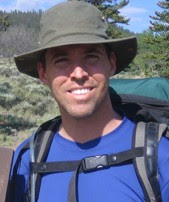I was reading the blog of a friend of mine (Paul Kind) this morning and it started me thinking about the role of community in modifying behavior.
Here is a portion of his post:
"It seems to me that selflessness over selfishness is a near universal value. Every faith points us in this direction. Whether you follow the teachings of Jesus, Abraham, Muhammad, Siddhartha, or otherwise, selflessness over selfishness is at the core. It's trumpeted in politics, in the church, and in the workplace. And yet I imagine you would agree with me that so many of us have a long way to go in this quest.
Would it be accurate to say that the quest from selfishness to selflessness is at the core of every faith system?
Is this one of the main quests of life???"
(W)hat role can other people play in helping us along in this quest?
My response:
A different spin -
What if the naturalists are correct and there is a "selfish" gene and a mutated version of the same gene that I will call the altruism gene... Then, our natural tendency would be to get everything we can so we can spread our genes as far and wide as possible. He who has the most toys, fathers the most children, and wins a swim in the deep end of the gene pool.
But - in our present society altruism is seen as a virtue. Denying self holds a high place of honor. This would tend to favor the emergence of the altruism gene. The trouble is this: does personal altruism increase or decrease the ability of the individual to reproduce? Is the altruistic trait passed on, or genetically squelched out?
An individual who sacrifices themselves for the sake of others may be more likely to die before reproducing thereby reducing the tendency for altruism to be passed to his offspring. However, if the individual is part of a community that holds heroism and altruism in high esteem the trait may still be preserved. This is because of another mechanism that regulates the way genes are expressed known as epigenetic modification. The environment, or the local community, can increase the tendency toward certain behaviors by modifying gene expression. Notice the difference, the community is not changing the sequence of the gene for selfishness, simply altering its ability to be expressed.
Religion offers an opportunity to move away from our natural tendencies of selfishness and toward selflessness. In closely knit religious communities it is fairly common for an individual to sublimate their own needs to meet the needs of others. This tendency is reinforced constantly by the community ethos and conversation. These communities may cause epigenetic modification of the "selfish gene" thereby preventing, or at least decreasing, its expression.
As with most complex human behaviors it is imprudent, and probably unwise, to suggest that a single gene controls what a person does. Behavior is complex and likely controlled by genetic factors, brain structure, experience, and a host of other factors. Still, the role of community and faith in shaping the genetic component of behavior is fascinating.
Christianity may offer the best path to selfless behavior because of its emphasis on the supernatural nature of the pursuit. I cannot claim to know how the supernatural intersects with the natural - God works in mysterious ways - but what if one of the ways he works is by drawing people into community, thereby affecting gene expression, and changing behavior. That would be a tremendously complex system to bring about a simple result... sounds a lot like biology to me.
Thursday, September 11, 2008
Subscribe to:
Post Comments (Atom)

1 comment:
You ought to present a paper on this ;-)
Post a Comment